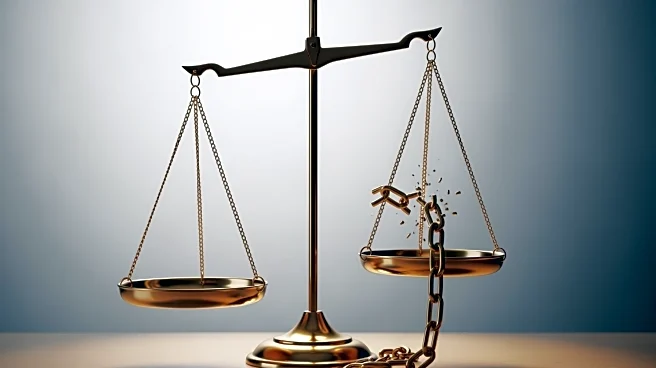What's Happening?
A recent judgment by HHJ Walsh has determined that the below-knee amputation of Mr. Haley's leg was not caused by a workplace accident involving a forklift truck at Newcold Limited. Despite suffering a severe
crush injury to his foot in 2019, the court found that the amputation in 2024 was not attributable to the accident. The decision followed a trial of a preliminary issue, where Mr. Haley claimed the amputation was necessary due to unbearable pain and restricted movement resulting from the accident. However, Newcold disputed this, presenting evidence of Mr. Haley's active lifestyle and surveillance footage showing his level of function. The court concluded that Mr. Haley's decision to amputate was a supervening event, breaking the chain of causation from the original accident.
Why It's Important?
This ruling has significant implications for liability in workplace injury cases. By determining that the amputation was not directly caused by the accident, the court has set a precedent for assessing causation in complex injury claims. Employers and insurers may benefit from this decision, as it limits liability for injuries that are not directly attributable to workplace incidents. Conversely, employees may face challenges in proving causation for long-term injuries, potentially affecting compensation claims. The case highlights the importance of comprehensive evidence in determining the effective cause of injuries and the role of personal conduct in legal outcomes.
What's Next?
The ruling may prompt further legal scrutiny in similar cases where causation is disputed. Employers and insurers might adopt more rigorous evidence-gathering practices to defend against claims of long-term injury liability. Legal experts may analyze the implications of this decision on future workplace injury claims, potentially influencing how courts assess causation and liability. Additionally, Mr. Haley may consider appealing the decision, seeking to challenge the court's findings and the interpretation of causation in his case.
Beyond the Headlines
The case raises ethical questions about the balance between personal autonomy and legal responsibility in medical decisions. It underscores the complexity of determining causation in injury claims, particularly when personal choices intersect with medical advice. The ruling may influence how courts view the role of personal conduct in breaking the chain of causation, potentially affecting future legal standards in injury liability cases.










